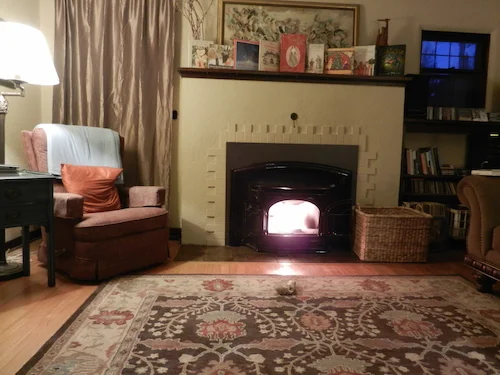The role of the artist in society is unique. Unlike bankers, teachers, police officers, senators, doctors, or professors, artists stand at the margins of society and write poetry and prose rife with metaphor and images as a kind of prophetic voice, hopefully with a vision of truth and love. This vision can empower community, uplifting the vulnerable, and provide a newfound hope for a better life for all. The artist has the power to bend language to her will to get “between the lines” of poetry to allow what the Bible calls “true religion” to emerge. With this perspective, there is beauty, clarity, and pure advocacy.
All in Truth
1,000 Days
Never mind that this child is in a different country than the one for which we have been approved. Never mind that moving forward with this child will mean redoing much of our paperwork, once again driving around to banks, doctor’s offices, police departments, and myriad government buildings to get new documents printed, notarized, and certified. My friend Jill has a song that sings, “And then out of nothing, it’s telling me something I didn’t know that I knew.” There is a mysterious kind of knowing that can happen to a person, and it seems all the more sweet and supernatural when it comes to your life partner in the same time and space.
 So, this winter, I’m finding it worthwhile — even necessary — to name the things that are saving my life. Sometimes I scribble down a list in my journal (a gift from my sister last Christmas, and itself a lifesaver). Sometimes I take the time to write a blog post, with pictures of those purple tulips or a brave blue winter sky. Most often, I’m trading daily texts with my friend Laura, both of us doing our best to find and name the things that are saving our lives. The act of naming them often becomes a lifesaver, a welcome glimpse into the brighter side of this world.
So, this winter, I’m finding it worthwhile — even necessary — to name the things that are saving my life. Sometimes I scribble down a list in my journal (a gift from my sister last Christmas, and itself a lifesaver). Sometimes I take the time to write a blog post, with pictures of those purple tulips or a brave blue winter sky. Most often, I’m trading daily texts with my friend Laura, both of us doing our best to find and name the things that are saving our lives. The act of naming them often becomes a lifesaver, a welcome glimpse into the brighter side of this world.
 When I was a child, I lived in fear. Now that I’m a man, I’m learning — slowly, it sometimes seems — how to act out of love; love for my friend, love for my neighbor, love for myself. Love grounded in particulars, freed from the burden of empty rhetoric. Love that honors the dignity and complexity of every person I meet.
When I was a child, I lived in fear. Now that I’m a man, I’m learning — slowly, it sometimes seems — how to act out of love; love for my friend, love for my neighbor, love for myself. Love grounded in particulars, freed from the burden of empty rhetoric. Love that honors the dignity and complexity of every person I meet.
 I have, in other words, no desire to go back in history. But I do yearn to see trees with greater clarity. I want to see them as my fellow creatures, called into existence by God, with a dignity and significance all their own. I want to realize that at the creation they were made to be trees, for God’s glory, and they have done so — it is my race of creatures that refuses to abide by God’s word. I want to know more about chlorophyll and cambium layers and see in them glimpses of glory that shine with hints of a transcendent power beyond my knowing.
I have, in other words, no desire to go back in history. But I do yearn to see trees with greater clarity. I want to see them as my fellow creatures, called into existence by God, with a dignity and significance all their own. I want to realize that at the creation they were made to be trees, for God’s glory, and they have done so — it is my race of creatures that refuses to abide by God’s word. I want to know more about chlorophyll and cambium layers and see in them glimpses of glory that shine with hints of a transcendent power beyond my knowing.
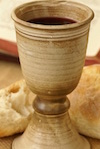 We didn't totally understand what Communion was. At least I didn’t. If it was magical to the Catholics, literally becoming body, and blood, and meaningless to atheists, a bizarre religious ritual, I suppose I fell somewhere in between. We read no books about Communion, took no classes to prepare, made no declarations of faith besides the act itself. Now I see the act is its own declaration, its own remembrance. But I didn't know then.
We didn't totally understand what Communion was. At least I didn’t. If it was magical to the Catholics, literally becoming body, and blood, and meaningless to atheists, a bizarre religious ritual, I suppose I fell somewhere in between. We read no books about Communion, took no classes to prepare, made no declarations of faith besides the act itself. Now I see the act is its own declaration, its own remembrance. But I didn't know then.
Seldom Suppress a Generous Impulse
When I was young, it struck me as strange that my father enjoyed giving so much, but years later, I am finally beginning to understand. He has become so accustomed to the thrill of working alongside his heavenly father to care for the needs of others that temporal goods have lost hold on his affections. As the earthly tent wears thin, he sees with ever increasing clarity the bountiful riches of God’s economy. One day, I hope that I will see it too.
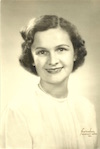 . . . so much of what Doll taught me had to do with working around missteps — my own, and others’ — with flexibility and grace. And, posthumously, that she’s redefined the meaning of hospitality for me, so that I think of it not only in its traditional sense, but also in the day-to-day as I “host” my children, their friends, my husband, and our friends and family. Doll cared for and catered to her guests. She hoped to spoil them with the best of what she had to offer — a thing that, when translated, came down to great love and a capacity to supply equal amounts of comfort and whimsy.
. . . so much of what Doll taught me had to do with working around missteps — my own, and others’ — with flexibility and grace. And, posthumously, that she’s redefined the meaning of hospitality for me, so that I think of it not only in its traditional sense, but also in the day-to-day as I “host” my children, their friends, my husband, and our friends and family. Doll cared for and catered to her guests. She hoped to spoil them with the best of what she had to offer — a thing that, when translated, came down to great love and a capacity to supply equal amounts of comfort and whimsy.
Find the Good and Praise It
Like it or not, I have been fine-tuned since childhood to feel the weight of the world’s woes more than most, perhaps like you who read the Art House America Blog (or write for it). Luci Shaw calls it the poet’s curse, this heightened sensitivity to life’s joys and sorrows. We can’t not feel what we feel. I couldn’t agree more and yet the nagging question for me comes down to this: how do we find the good and praise it in the midst of so much suffering? How do we flesh out our callings with lives of deep joy and courage? These questions haunt me year after year. I can’t promise much in the way of satisfying answers, only glimmers, a semblance of peace.
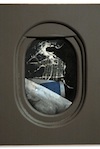 When I look back on this year, I see a deep and abiding vein of grace that has brought me to the place I am now, safe, and I am so grateful for that. But it has existed in what has seemed mostly like a nightmare, so much like a nightmare that my memories of it are fragmented and disjointed, and the images rise up out of it like terrible fish out of a black pond.
When I look back on this year, I see a deep and abiding vein of grace that has brought me to the place I am now, safe, and I am so grateful for that. But it has existed in what has seemed mostly like a nightmare, so much like a nightmare that my memories of it are fragmented and disjointed, and the images rise up out of it like terrible fish out of a black pond.
 She straightened herself up, turned to face me, and put her right hand over her left — a portrait of dignity and poise. And then, with just the two of us in the room, she began to sing over me.
She straightened herself up, turned to face me, and put her right hand over her left — a portrait of dignity and poise. And then, with just the two of us in the room, she began to sing over me.
“Happy birthday to you. Happy birthday to you. Happy birthday, dear Mr. Ramsey. Happy birthday to you.”
Then she smiled, turned, and left the room.
And I wept.
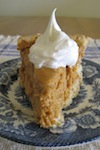 Sometimes I am frustrated with the way my denominational tribe approaches the Lord's table. (Sometimes I am frustrated with the ways single people are invisible in the church.) Occasionally I sneak off for what I call "a maintenance dose of liturgy," to a place where everything in the service builds to the table, and we literally approach it, getting up out of our seats and walking to it and holding out our hands. (Occasionally I sneak off to someplace where I expect to be invisible.) I did that a few Sundays ago.
Sometimes I am frustrated with the way my denominational tribe approaches the Lord's table. (Sometimes I am frustrated with the ways single people are invisible in the church.) Occasionally I sneak off for what I call "a maintenance dose of liturgy," to a place where everything in the service builds to the table, and we literally approach it, getting up out of our seats and walking to it and holding out our hands. (Occasionally I sneak off to someplace where I expect to be invisible.) I did that a few Sundays ago.
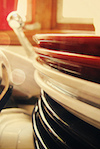 Hospitality begins with homemaking, and proper homemaking is always connected to hospitality. The slow roll of daily tasks, like scrubbing the toilets and sweeping the floors. The seasonal study of vegetables and how they might come together for a meal. The predictable safety of steady care among housemates. And then you want others — non-residents, the stranger the better — to enjoy what you enjoy. You want to extend to others whatever provisions and comforts belong to your household. Even introverts may find that it feels natural to make home in this way. Hospitality is the art of homemaking for people who don’t belong to your home.
Hospitality begins with homemaking, and proper homemaking is always connected to hospitality. The slow roll of daily tasks, like scrubbing the toilets and sweeping the floors. The seasonal study of vegetables and how they might come together for a meal. The predictable safety of steady care among housemates. And then you want others — non-residents, the stranger the better — to enjoy what you enjoy. You want to extend to others whatever provisions and comforts belong to your household. Even introverts may find that it feels natural to make home in this way. Hospitality is the art of homemaking for people who don’t belong to your home.
 Don’t be surprised if you’re making bad art. Don’t be discouraged. And whatever you do, don’t stop. Keep making bad art. Not because you’re wrong about your self-evaluation — you might be producing some really awful stuff. But just because the thing you’re working on is a ripe mess doesn’t necessarily mean it’s time to stop working. On the contrary, that might be both the worst time and reason to quit. I think you need to make bad art in order to make anything better. I know that’s been the case for me.
Don’t be surprised if you’re making bad art. Don’t be discouraged. And whatever you do, don’t stop. Keep making bad art. Not because you’re wrong about your self-evaluation — you might be producing some really awful stuff. But just because the thing you’re working on is a ripe mess doesn’t necessarily mean it’s time to stop working. On the contrary, that might be both the worst time and reason to quit. I think you need to make bad art in order to make anything better. I know that’s been the case for me.
 I am momentarily weightless standing here in the waning night, loose from sleep and freed by unfettered rest. Is it even right to be taking my emotional temperature this early in the morning? Shouldn’t I be telling myself how I feel? Brand new day! Clean slate! Expect to see God’s goodness! His mercies are new every morning! I do believe this. But some days it’s hard for the message to sink into my gut. I need extra time to dress myself in that truth.
I am momentarily weightless standing here in the waning night, loose from sleep and freed by unfettered rest. Is it even right to be taking my emotional temperature this early in the morning? Shouldn’t I be telling myself how I feel? Brand new day! Clean slate! Expect to see God’s goodness! His mercies are new every morning! I do believe this. But some days it’s hard for the message to sink into my gut. I need extra time to dress myself in that truth.
Repairing the World
Even with the best hopes, the truest motives, we will get hurt, because the world is very messy. Stepping in, even with responsibility born of love, is never neat-and-clean. To take up the wounds of the world will wound us, as it did God himself — which is why the heart of our vocation must be the imitation of the vocation of God. Nothing else can so form us, nothing else can so sustain us.
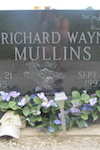 I used to desire, more than anything, to be useful to God. To be a good Christian. To change the world for Christ. To burn with the prophetic fire that lit Rich Mullins. But when my good works turned to ashes in my hands, I learned for the first time how precious it was to be wanted by God, apart from any usefulness I might have. Rich fought hard to grasp this lesson, and maybe if I’d been listening better I could have learned it from him while he was alive, but I doubt it: I had to fight for it on my own.
I used to desire, more than anything, to be useful to God. To be a good Christian. To change the world for Christ. To burn with the prophetic fire that lit Rich Mullins. But when my good works turned to ashes in my hands, I learned for the first time how precious it was to be wanted by God, apart from any usefulness I might have. Rich fought hard to grasp this lesson, and maybe if I’d been listening better I could have learned it from him while he was alive, but I doubt it: I had to fight for it on my own.
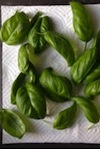 For the first time in my life, I did not know what was next. I only knew that it was time to lay low, rest, and wait. I was dried up inside and felt like I had very little to offer anyone around me. As it turns out, for the first three weeks of the year, I really didn’t have anything to offer as I was sick with a cold the whole time. I thought that I was going to start my sabbatical by doing all those things you never have time to do when you are working, like crafts and cooking and working out in the middle of the day. Nevertheless, my body was screaming at me to stop doing and start being. So I slept. A lot.
For the first time in my life, I did not know what was next. I only knew that it was time to lay low, rest, and wait. I was dried up inside and felt like I had very little to offer anyone around me. As it turns out, for the first three weeks of the year, I really didn’t have anything to offer as I was sick with a cold the whole time. I thought that I was going to start my sabbatical by doing all those things you never have time to do when you are working, like crafts and cooking and working out in the middle of the day. Nevertheless, my body was screaming at me to stop doing and start being. So I slept. A lot.
 I believe that God honors our questions just as my dad honored mine. I believe that God stays with us, even when prayers and songs seem flimsy as paper angels. I believe that it helps to leave the hall light on when the questions come faster than morning. And I keep asking those questions because somewhere in the asking I find I am not answered but I am heard.
I believe that God honors our questions just as my dad honored mine. I believe that God stays with us, even when prayers and songs seem flimsy as paper angels. I believe that it helps to leave the hall light on when the questions come faster than morning. And I keep asking those questions because somewhere in the asking I find I am not answered but I am heard.
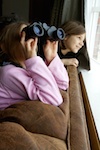 180 days. Four hours of instructional time per day. These are the only requirements dictated by the state of Tennessee. I was free to use curriculum or not to use curriculum. I could test or not. Unschooling appealed to me because it felt more sustainable; without a rigid plan I would be less likely to burn out. Even if it didn’t work, one year of unschooling wouldn’t kill us. And maybe it would be exactly what we needed to recalibrate and de-stress.
180 days. Four hours of instructional time per day. These are the only requirements dictated by the state of Tennessee. I was free to use curriculum or not to use curriculum. I could test or not. Unschooling appealed to me because it felt more sustainable; without a rigid plan I would be less likely to burn out. Even if it didn’t work, one year of unschooling wouldn’t kill us. And maybe it would be exactly what we needed to recalibrate and de-stress.


















